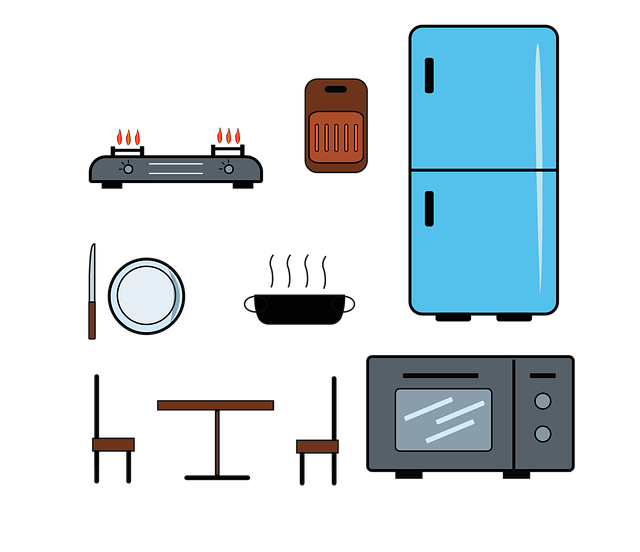GE washing machines may experience various problems like failure to start, lack of agitation, or strange noises. To address these issues, check the power source and lid status if applicable. A washer not agitating could be due to a dislodged belt or a clogged pump filter, while non-spinning models might need inspection for drum balance, obstructions in the spinning mechanism, and lid switch malfunctions. Odd sounds like grinding or squealing typically indicate motor coupling, pulley, or belt issues. Regular maintenance, including checking drains for kinks, inspecting water level switches, verifying electrical connections, and ensuring the water inlet valve is functioning, is crucial for resolving problems with draining, agitation, power supply, or water filling. Clean the lint filter monthly, use vinegar to clean the drum, and employ the balance function to maintain the machine's longevity and performance. Always refer to the user manual for specific instructions, and consider professional maintenance to ensure your GE washing machine operates efficiently for a long time.
When it comes to maintaining the efficiency and longevity of your GE washing machine, a proactive approach is your best ally. This article delves into the common issues that can arise with these appliances, providing targeted solutions to keep your laundry operations running smoothly. From diagnosing faults to performing step-by-step troubleshooting, we equip you with the knowledge to address any challenge that arises. Moreover, understanding the intricacies of GE washer maintenance and long-term care will not only enhance the performance of your machine but also safeguard your garments against unintended damage. With these practical insights, you’ll ensure that your GE washing machine remains a reliable partner in your quest for effective laundry solutions.
- Common GE Washer Problems and Solutions
- Step-by-Step Troubleshooting for GE Washing Machines
- Tips for Maintenance and Long-Term Care of GE Washers
Common GE Washer Problems and Solutions

GE washing machines, like any other household appliance, can encounter various issues over time. Common problems include a washer that won’t start, one that doesn’t agitate or spin, or a machine that makes unusual noises. If your GE washer fails to turn on, check the power source, electrical outlet, and whether the machine’s lid is properly closed. A washer not agitating could be due to a loose belt or a jammed pump. Inspect the drive belt for any signs of looseness or damage, and make sure the pump filter is clean. For machines that won’t spin, verify that the drum is balanced and there are no obstructions in the way of the spinning mechanism. Additionally, check the lid switch, which can fail and prevent spinning. Unusual sounds such as grinding or squealing often indicate issues with the motor couplings, pulleys, or belts, which may need replacement or adjustment. Addressing these problems promptly can restore your GE washer to efficient operation and ensure your laundry tasks are handled smoothly. Regular maintenance and timely problem-solving are key to prolonging the life of your appliance and maintaining its performance.
Step-by-Step Troubleshooting for GE Washing Machines

When encountering issues with your GE washing machine, a step-by-step troubleshooting approach can help identify and resolve the problem efficiently. If the washer isn’t draining properly, start by ensuring the drain hose is not kinked or positioned higher than the washtub. Check that the water level switch is clean and functioning correctly; it should move freely without obstruction. Should the machine fail to agitate, verify if the lid switch or agitator assembly is malfunctioning. If there’s no power to the unit, inspect the electrical connections for loose wires or tripped circuits. For issues with water not filling, investigate whether the water inlet valve is defective or if the faucet supply valves are closed. Throughout this process, consult the user manual for specific model instructions and safety precautions. By following these troubleshooting steps methodically, you can often resolve common problems with your GE washing machine, ensuring it functions effectively for your laundry needs.
Tips for Maintenance and Long-Term Care of GE Washers

Regular maintenance of your GE washing machine is key to ensuring its longevity and effectiveness in providing clean laundry. Start by inspecting the machine’s door gasket, seals, and hoses regularly for any signs of wear or leaks, as these can affect performance and cause water damage. Clean the lint filter after each use to prevent clogging, which can lead to poor drainage and efficiency. Additionally, keep the washer’s drum clean by running a hot wash cycle with a cup of vinegar monthly to eliminate residues and odors that build up over time.
For long-term care, it’s important to balance the machine’s water supply. Use the balance function or add balancing pacs as recommended by GE to protect against excessive agitation that can damage the washer’s components. During each use, be mindful of the washing machine’s load capacity to avoid overworking the unit. Periodically check the water level settings and adjust if necessary to maintain optimal performance. Lastly, refer to the user manual for specific model instructions and schedule professional maintenance checks to address any issues before they escalate. Proactive care will help your GE washer operate at its best, ensuring that it serves you well for years to come.
When encountering issues with your GE washing machine, understanding common problems and their solutions, following detailed troubleshooting steps, and maintaining your appliance through proper care are crucial for ensuring efficient laundry operations. By implementing the advice provided in this article, you can extend your washer’s lifespan and enhance its performance, guaranteeing that it continues to serve as a dependable laundry companion. Remember to regularly check connections, inspect components, and perform routine maintenance to prevent minor issues from escalating. With these practices, your GE washing machine will remain a reliable fixture in your home, providing effective laundry solutions for years to come.
